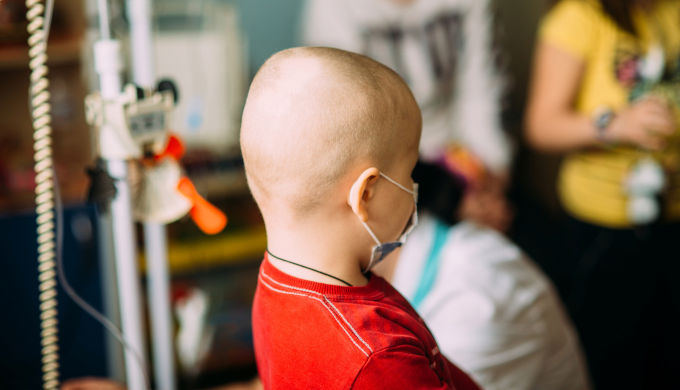Author: Lynda Williams
medwireNews: Findings from the BEACON-Neuroblastoma trial suggest that adding bevacizumab to temozolomide-based chemotherapy may improve the objective response rate (ORR) for children with high-risk, relapsed or refractory disease.
“The addition of [bevacizumab] met protocol-defined success criteria for ORR and appeared to improve PFS [progression-free survival],” report Lucas Moreno, from Vall d’Hebron University Hospital in Barcelona, Spain, and co-authors in the Journal of Clinical Oncology.
The phase 2 study used a 3 x 2 factorial design to compare three chemotherapy backbones – temozolomide (T) alone or in combination with irinotecan (IT) or topotecan (TT) – given with or without the VEGF-A inhibitor bevacizumab as a follow-up regimen for patients with an inadequate response to frontline treatment.
The investigators recruited 160 participants aged 1–21 years who were attending 43 institutions in 10 European countries. The patients had relapsed high-risk neuroblastoma (58%) or refractory disease (42%), defined as three or more spots on metaiodobenzylguanidine scanning with or without bone marrow disease.
These individuals were randomly assigned to receive six cycles of bevacizumab 10 mg/kg with T (n=34), IT (n=30) or TT (n=16), or to receive the three chemotherapy regimens without bevacizumab (n=36, n=30 and n=14, respectively). Bevacizumab was given on day 1 and 15 of each 3- or 4-week cycle depending on the regimen received.
The ORR was 26% for the 80 patients who received bevacizumab in any combination versus 18% for the 80 patients who did not receive the anti-angiogenic agent. This gave a risk ratio of 1.52 and a p value of 0.17, which met the prespecified success criterion of a p value below 0.20, the authors say.
The 1-year rates of PFS among those receiving and not receiving bevacizumab were 46 and 38%, respectively, giving a hazard ratio (HR) for disease progression or death of 0.89 “that seemed to improve with the addition of [bevacizumab] within the limitations of evidence generated within a randomized phase II trial”, write Moreno et al.
When the chemotherapy regimens were compared, regardless of bevacizumab assignment, the researchers found no difference in the ORR between patients assigned to receive T versus IT (21 vs 20%) or T versus TT (23 vs 27%), although the 1-year PFS rates appeared higher for both IT versus T (53 vs 30%) and TT versus T (47 vs 23%).
Moreover, further analysis “showed some evidence of a potential interaction between irinotecan and [bevacizumab]” with regard to PFS, the investigators report. They say that this “unexpected” interaction is “biologically plausible” as both bevacizumab and irinotecan have immune and anti-angiogenic effects.
The 1-year estimated PFS was 67% for patients given bevacizumab plus IT and the 1-year overall survival estimate was 77%, although no formal statistical comparisons could be made between the trial arms.
Moreno and co-authors note that receipt of IT was linked to higher rates of diarrhoea and other gastrointestinal symptoms compared with T alone, while TT use led to greater myelotoxicity, as did the use of bevacizumab, including higher rates of neutropenia, anaemia and thrombocytopenia.
Bevacizumab use was also associated with grade 3 or more severe proteinuria, occurring in 5% of patients versus no cases in those given chemotherapy alone.
“The current results need to be analyzed in the context of recently reported trials in the relapsed/refractory neuroblastoma setting”, the researchers comment.
“The combination of anti-GD2 therapy with chemotherapy has shown very promising results in single-arm studies and smaller randomized trials”, they say, adding that the BEACON trial protocol has now been amended to include evaluation of the anti-GD2 agent dinutuximab alongside chemotherapy versus bevacizumab plus IT.
News stories are provided by medwireNews, which is an independent medical news service provided by Springer Healthcare Ltd. © 2024 Springer Healthcare Ltd, part of the Springer Nature Group
This independent news story was supported by an educational grant from L’Institut Servier, Suresnes, France.
Image Credits: © Alexandra Wischnewa / stock.adobe.com



